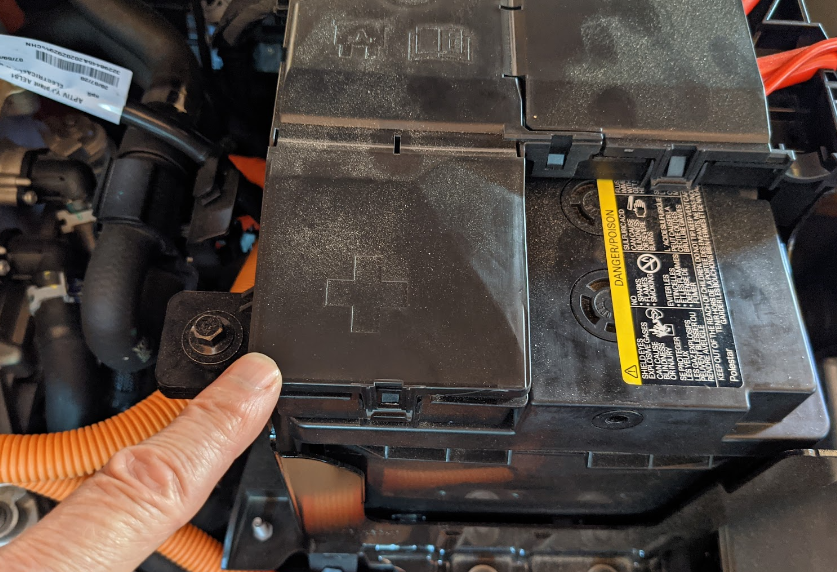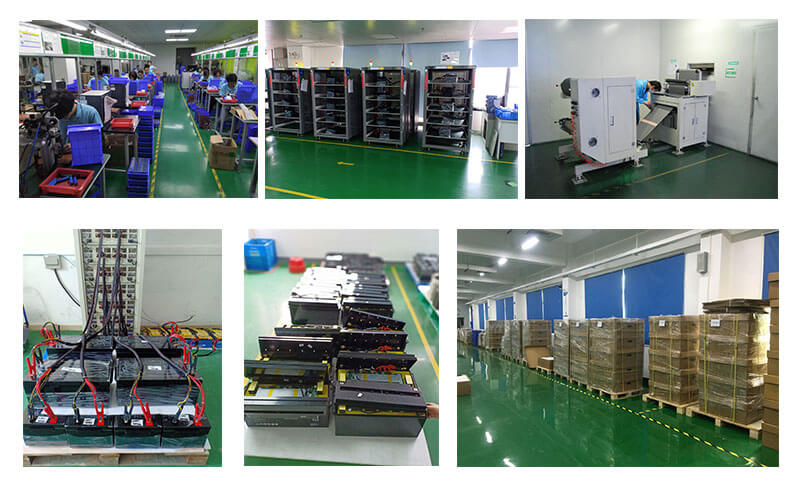미래를 위한 동력: 배터리 산업 부문의 부상
In recent years, there has been a significant increase in the demand for batteries. From portable electronics to electric vehicles, batteries have become an essential part of our everyday lives. This growing demand has led to the rise of the battery industrial sector, which is now playing a crucial role in shaping the future of energy storage.
With the increasing concern for global warming and the need to reduce greenhouse gas emissions, there is a growing emphasis on renewable energy sources. However, one of the major challenges with renewable energy is the intermittent nature of sources such as solar and wind. This is where batteries come into play. They provide a reliable and efficient way to store excess energy generated during peak times and release it during periods of low production.
The battery industrial sector is not limited to just one type of battery. There are various types of batteries available, each with its own unique characteristics and applications. One of the most common types is the lithium-ion battery, which is widely used in portable electronics and electric vehicles. These batteries offer high energy density, long cycle life, and low self-discharge rates, making them ideal for applications that require a compact and lightweight power source.
In recent years, there have been significant advancements in battery technology, leading to the development of more efficient and cost-effective batteries. For instance, researchers are working on solid-state batteries, which offer higher energy density and improved safety compared to traditional lithium-ion batteries. These advancements are expected to revolutionize the battery industrial sector, making batteries more affordable and accessible to a wider range of applications.
The rise of the battery industrial sector has also created new opportunities for job growth and economic development. Battery manufacturing facilities require a skilled workforce to design, produce, and maintain batteries. As the demand for batteries continues to increase, so does the need for skilled workers in this sector. This has led to the creation of new jobs and the growth of local economies in regions where battery manufacturing facilities are located.
Furthermore, the battery industrial sector has also triggered innovation and research in related fields. Scientists and engineers are constantly exploring new materials and technologies to improve battery performance and energy storage capabilities. This has led to collaborations between universities, research institutions, and private companies, fostering a culture of innovation and technological advancement.
In addition to the environmental benefits and economic opportunities, the battery industrial sector is also driving the transition to a sustainable energy future. As more renewable energy sources are integrated into the power grid, there is a need for large-scale energy storage solutions. Batteries can play a crucial role in balancing supply and demand, stabilizing the grid, and enabling the integration of renewable energy sources on a larger scale.
However, the battery industrial sector is not without its challenges. One of the major concerns is the environmental impact of battery production and disposal. The extraction of raw materials, such as lithium, cobalt, and nickel, can have adverse effects on the environment if not managed properly. Additionally, the disposal of batteries after their end-of-life can lead to pollution if not handled through proper recycling processes.

To mitigate these challenges, there is a need for sustainable battery production and recycling practices. Governments and industry stakeholders are working together to develop regulations and standards for responsible battery manufacturing and disposal. Additionally, efforts are underway to develop new battery chemistries that rely on abundant and environmentally friendly materials.
In conclusion, the rise of the battery industrial sector is transforming the way we store and utilize energy. Batteries are becoming an indispensable component of our energy infrastructure, enabling the widespread adoption of renewable energy sources and driving the transition to a sustainable future. With ongoing advancements in battery technology and increasing investments in research and development, the future of the battery industrial sector looks promising.
-
 The rated capacity of a starter battery indicates the amount of electrical charge that the battery can store and deliver to start an engine. This capacity is usually measured in ampere-hours (Ah) or cold cranking amperes (CCA). The Ah rating of a battery indicates how many amps it can deliver for one hour before it needs to be recharged....더 읽어보세요
The rated capacity of a starter battery indicates the amount of electrical charge that the battery can store and deliver to start an engine. This capacity is usually measured in ampere-hours (Ah) or cold cranking amperes (CCA). The Ah rating of a battery indicates how many amps it can deliver for one hour before it needs to be recharged....더 읽어보세요 -
 In today's world, energy storage is becoming more and more important. We need to be able to store energy reliably and efficiently, so that we can use it when we need it most. This is where the 100Ah Lithium Lifepo4 battery comes in. This battery is designed to provide long-lasting power that you can rely on. One of the...더 읽어보세요
In today's world, energy storage is becoming more and more important. We need to be able to store energy reliably and efficiently, so that we can use it when we need it most. This is where the 100Ah Lithium Lifepo4 battery comes in. This battery is designed to provide long-lasting power that you can rely on. One of the...더 읽어보세요 -
 Why Choose Lifepo4 Battery Lithium iron phosphate battery, commonly known as LiFePO4 battery, also known as LFP battery ("LFP" stands for "lithium iron phosphate"), is a lithium-ion battery with lithium iron phosphate as the positive electrode material. Because the lithium iron phosphate material is more durable, safe, and fast charging, the Lifepo4 battery pack has at least five advantages: 1...더 읽어보세요
Why Choose Lifepo4 Battery Lithium iron phosphate battery, commonly known as LiFePO4 battery, also known as LFP battery ("LFP" stands for "lithium iron phosphate"), is a lithium-ion battery with lithium iron phosphate as the positive electrode material. Because the lithium iron phosphate material is more durable, safe, and fast charging, the Lifepo4 battery pack has at least five advantages: 1...더 읽어보세요 -
 Off-roading has always been a thrilling activity for adventure enthusiasts. The adrenaline rush and the feeling of conquering tough terrains is unmatched. However, the traditional dirt bikes have always been associated with noise, pollution, and maintenance issues. But now, with the introduction of electric dirt bikes powered by lithium batteries, off-roading is set to undergo a massive transformation. Lithium...더 읽어보세요
Off-roading has always been a thrilling activity for adventure enthusiasts. The adrenaline rush and the feeling of conquering tough terrains is unmatched. However, the traditional dirt bikes have always been associated with noise, pollution, and maintenance issues. But now, with the introduction of electric dirt bikes powered by lithium batteries, off-roading is set to undergo a massive transformation. Lithium...더 읽어보세요 -
 When it comes to marine vehicles, the reliable starting battery is the heartbeat that gets the engine running. Whether you are embarking on a thrilling fishing expedition or cruising through the open waters, a dependable marine starting battery is essential to power up your vessel. In this article, we will dive deep into the world of marine starting batteries, exploring...더 읽어보세요
When it comes to marine vehicles, the reliable starting battery is the heartbeat that gets the engine running. Whether you are embarking on a thrilling fishing expedition or cruising through the open waters, a dependable marine starting battery is essential to power up your vessel. In this article, we will dive deep into the world of marine starting batteries, exploring...더 읽어보세요 -
 Lithium batteries have become increasingly popular due to their high energy density, long life, lightweight and low self-discharge rate. Many applications require a higher voltage than a single cell can provide, which is why lithium batteries are often connected in series. While this approach offers several benefits, it also introduces some risks that must be understood and managed. Benefits...더 읽어보세요
Lithium batteries have become increasingly popular due to their high energy density, long life, lightweight and low self-discharge rate. Many applications require a higher voltage than a single cell can provide, which is why lithium batteries are often connected in series. While this approach offers several benefits, it also introduces some risks that must be understood and managed. Benefits...더 읽어보세요 -
 With the rapid growth of the electric vehicle market, the safety and reliability of automotive lithium-ion batteries has become a hot topic. Lithium-ion batteries have become the first choice for electric vehicle power systems due to their high energy density, long life and environmental friendliness. However, their special chemical properties and complex structure also pose many safety challenges. Therefore, safety...더 읽어보세요
With the rapid growth of the electric vehicle market, the safety and reliability of automotive lithium-ion batteries has become a hot topic. Lithium-ion batteries have become the first choice for electric vehicle power systems due to their high energy density, long life and environmental friendliness. However, their special chemical properties and complex structure also pose many safety challenges. Therefore, safety...더 읽어보세요

